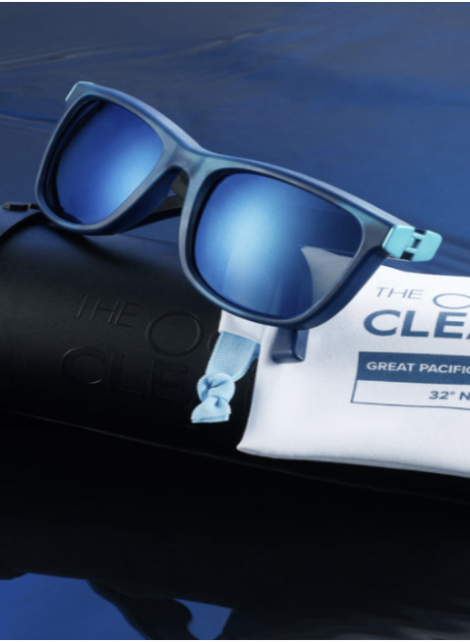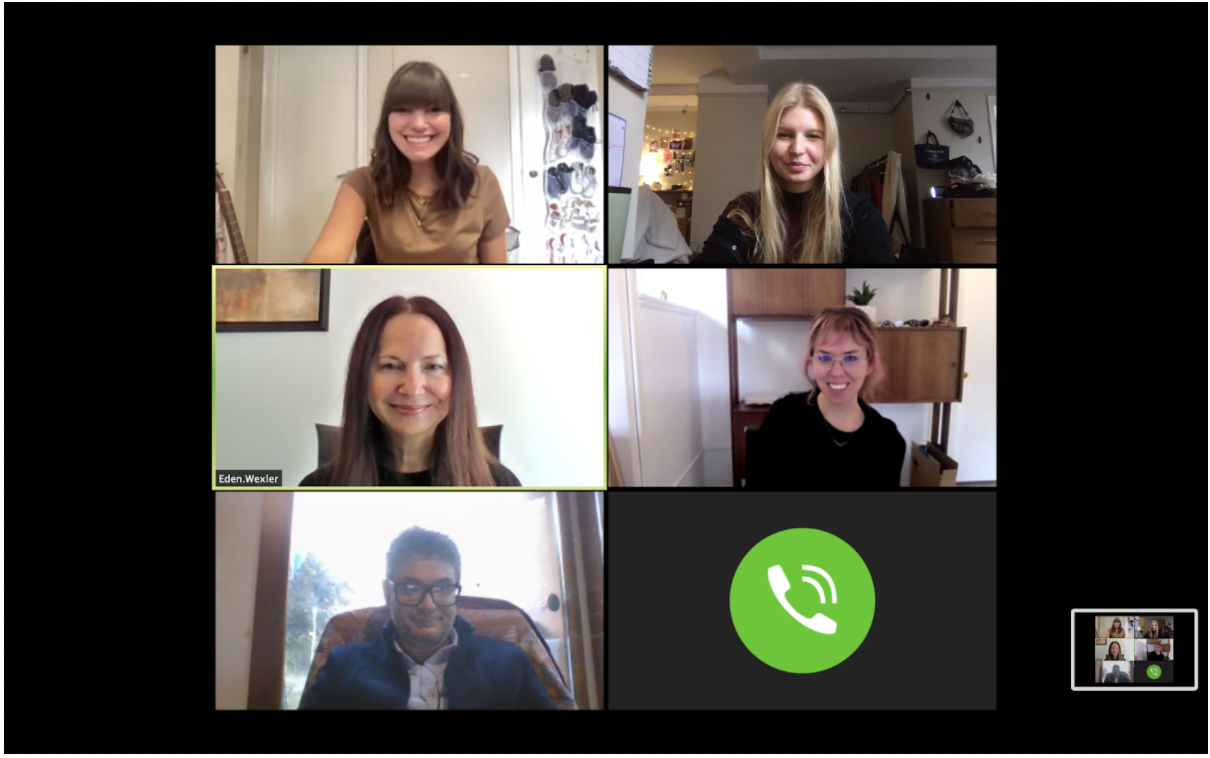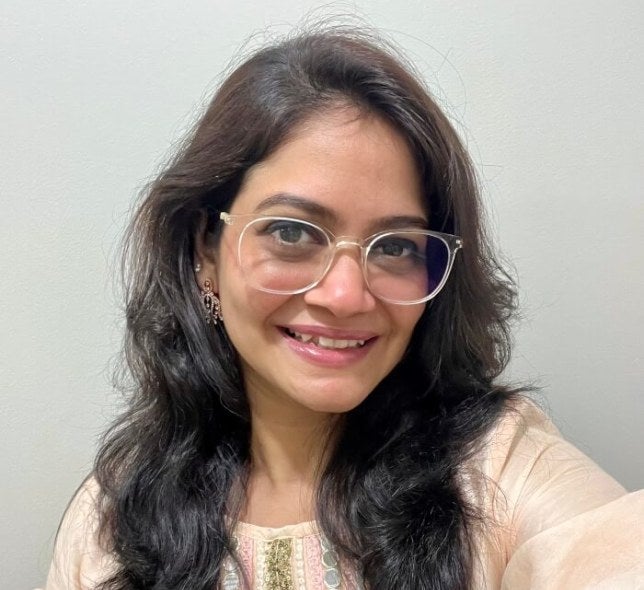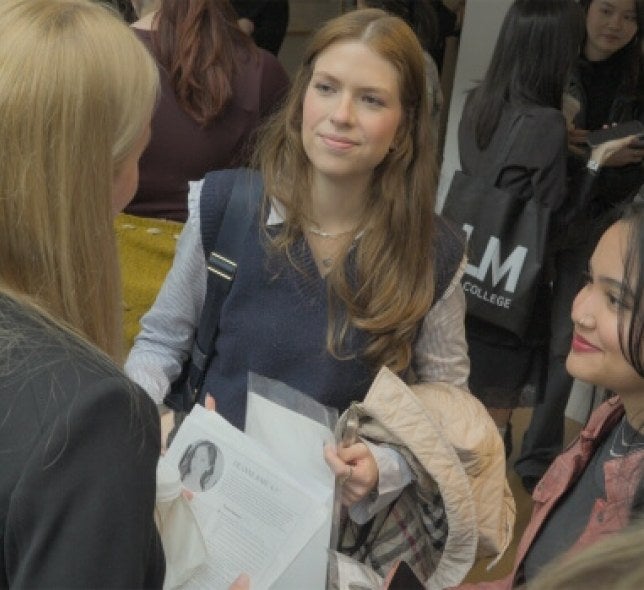This article is part of a series of interviews conducted by LIM students with winners of the Accessories Council's 2021 Design Excellence Awards (DEA). Students are enrolled in the College's Introduction to the Fashion Business classes.
We spoke with Eden Wexler, Director of Public Relations for Safilo North America, Hayley Friel, Design Director for Safilo North America, and Alessandro Bellati, Director of Product Innovation and N.A. Product Design & Creation. All three work for Safilo, the world's second largest eyewear manufacturer, which created The Ocean Cleanup glasses. We were excited to speak to the team and ask them our questions.
How did your partnership with The Ocean Cleanup come about?
Alessandro Bellati: “It’s actually a very funny story. A representative from The Ocean Cleanup, a nonprofit engineering environmental organization, came to our office and said that they were aiming to combat ocean plastic and would love to work together on a project.” The entire collaboration grew from that meeting and a gut feeling and was successful because Safilo and The Ocean Cleanup’s team combined their technical knowledge to bring the vision to life.
What was it like designing with recovered ocean plastic? Did you have to approach designing this product differently than your other designs given it uses such a unique material?
Alessandro Bellati: “This was the first eyewear Safilo designed with recovered ocean plastic. The team had to think of new ways to combine the metal and plastic to produce the glasses. We also had to use different mechanical processes to design with such a unique material.”
You are Director of Product Innovation- it seems that the ocean plastics these glasses were made of is really a great example of product innovation, what challenges were there in producing these glasses?
Alessandro Bellati: “There were many challenges in the production of the eyewear, all caused by the type of plastic used,” Bellati explained. He went on to stress that the smell was an unprecedented difficulty in the production. Bellati recalls that he was scared the odor of fish and rotting seaweed would never go away. Through the combined effort of the compounding team, they were able to solve this problem by cleaning the plastic with a solution that broke down the smell. Each batch of plastic that was fished from the ocean needed to be homogenous so that when it was pressed into shape, the glasses would all end up looking chemically identical to each other, but visually different.
You work with many other departments such as marketing, product development and sales, what is it like collaborating with the other departments at Safilo?
Hayley Friel: “I work with the brand team and also with sales to understand what Safilo needs.” In addition to this, Friel works with product creation and has a role in sketching and coloration. Friel shared, “It is a huge company, so it is important to make sure everyone knows what’s going on." She added, “You can learn so much because you get to interact with so many different roles.” Eden Wexler added a great point that “we need to work together closely to be successful."
You are currently working on Virtual Try-On applications and tools to support digital retail. Could you tell us more about that?
Alessandro Bellati: “Virtual Try-On applications enable customers to digitally try on eyewear, accessories, and eventually cosmetics without being physically present. Based on your facial measurements, the application we are currently using assists in determining what eyewear fits you best, within a given product assortment. This tool is convenient for customers who do not want or are unable to physically come into a store. The Virtual Try On app debuted in our booth at Vision Expo West, the second largest eyewear trade show in the United States.” Bellati was excited to share that the program will be helpful for opticians and eyewear professionals going forward.
How do you think the fashion industry should address the problem of sustainability globally?
Hayley & Alessandro: rag & bone is one of Safilo’s eyewear licenses who are about to launch their first eco-eyewear collection. "They are super excited about it,” Friel says. She also explained that there are different ways brands approach sustainability. Some go about it very loudly, while other brands are approaching it more quietly. Hayley Friel spoke about how having sustainable products is necessary if companies want to attract Gen Z customers. Alessandro Bellati also added that companies need to set a standard and protocol when dealing with sustainability, so other companies are inspired to become more eco-conscious.
What inspired each of you to go into your specific fields in this industry?
Bellati started in mechatronics and explained that eyewear has many processes like automation, which allowed him to join Safilo as a “technology expert." He was interested in the machines that played a role in the production of eyewear. Friel has a background in jewelry which translated well into the eyewear industry. She explained that eyewear is necessary. It protects the human eye and helps people see, whereas not every fashion product serves the same purpose. Wexler's background in liberal arts communications and public relations led her to go from beauty, to fashion, and ultimately eyewear where she’s worked for 23 years.
Will you continue working with The Ocean Cleanup in the future? For instance, adding more products and creating a small product line in cooperation with them.
Alessandro Bellati: Safilo is excited for all collaborations and doesn't necessarily push for long-term projects. He would love to support the issue of ocean plastic again in the future. The Ocean Cleanup is a non-profit organization, so they do not focus on a merchandise line. They are driven by the vision and the purpose, which was why it was amazing to work together.
Do you have any advice that you would give to students going into the fashion industry at a time when the problem of sustainability is so prevalent?
Friel explained that she would advise students to take internship opportunities to network and "get your foot in the door." Wexler and Bellati suggested working for companies where sustainable practices are the number-one priority. “It is an important conversation all companies are having,” Wexler told us. Bellati stressed that it is important for companies to “create awareness around sustainability.” He also explained that everyone has the possibility to drive change, so it's important to work for a company that aligns with your views.
This interview was an amazing experience that allowed us to gain knowledge about the future of sustainability in the fashion industry, as well we had the opportunity to meet three amazingly creative individuals. Going forward we will be following Safilo and watching how all companies and customers can play a role in creating a more sustainable future of fashion.




